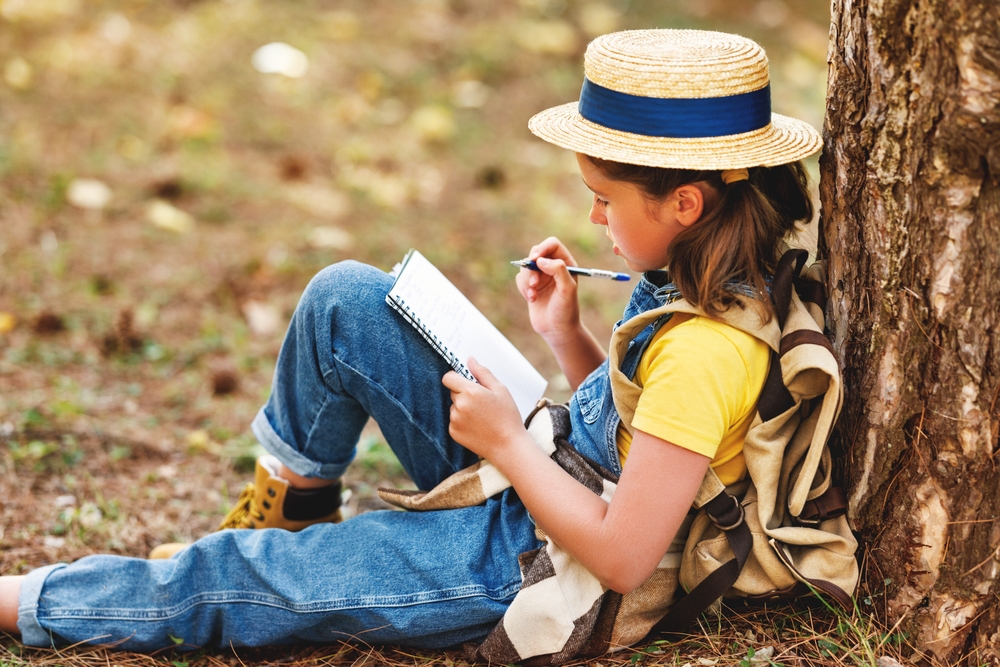This month we’ve celebrated National Poetry Day, which provides a great opportunity for schools to explore this subject in more depth.
CLPE’s Poetry in Primary Schools 2023 report has provided some interesting insights.
On the positive side, the report showed that 88% of teachers thought that children enjoy engaging with poetry and 89% felt that children enjoyed listening to poetry being read or performed.
However, the report also found that many teachers lack confidence when it comes to teaching poetry. They cited lack of training, limited knowledge of and access to poets, poems and poetry texts, and time pressures as some of the barriers to teaching poetry.
In this article we’ll explore why teaching poetry is important, and how our curated selection of resources – many of them free – can help.

Poetry helps children learn about language in a fun and engaging way
The rhythms of poetry can help children build awareness of the patterns of language and promote reading fluency. Rhyme helps develop children’s phonemic awareness (the ability to recognise and manipulate the sounds in spoken words).
Poetry also uses highly engaging and imaginative language so it can introduce children to new words, expanding their vocabulary. All of these are key steps for developing readers.
Poetry helps reluctant readers to fall in love with reading.
For children who are learning to read or who are reluctant readers, longer texts can be intimidating. Poetry offers shorter texts that are still rich in meaning. They are more concise and often have an irresistible sound and rhyme.
There is a wide range of poetry written on topics that are relevant and relatable to young readers. Our poetry resources for teachers can help you find poems that have wide appeal and can teach children about the modern world.
Poetry is a medium that’s wonderful for encouraging inclusivity.
That’s because poetry encourages us to reflect, share and broaden our realities. Poetry can introduce children to different cultures and diverse voices. It can foster a sense of curiosity about the world and its people.
Poetry often has memorable lines that children can carry with them throughout their lives, making it a powerful medium for important messages.
Help your pupils to think critically.
The metaphorical nature of many poems often requires readers to think critically and interpret the meaning behind the words. This can encourage readers to engage with the text on a deeper level, improving their comprehension and inference skills.
The space for personal interpretation that poetry provides also helps to develop children’s confidence and independent thinking.
Poems can also provide a source of comfort and support someone’s wellbeing.

Poetry writing competitions for children and teens.
Writing poetry allows children to explore their imagination and express their thoughts and emotions in creative and artistic ways. There are many poetry competitions for children and teens that teachers can use to engage and motivate their pupils.
Our Literacy Calendar will help you find them. It provides a month-by-month guide to the competitions, reading challenges and celebration days available to help you plan an engaging and exciting literacy curriculum.
Poems can be a useful oracy resource.
Poetry is meant to be spoken aloud or performed. Encouraging children to prepare and recite a poem in front of an audience helps them to develop self-assurance and other key oracy skills, such as pace, tonal variation, or using gesture and facial expression to enhance communication.
A wealth of free poetry resources for teachers.
Perhaps you are among the 61% of teachers who have never received any poetry CPD, either in teacher training or as a qualified teacher?
The good news is that there are lots of great resources out there to support the teaching of poetry and many of them are free. Here at Literacy Hive we want to make it easier to find them by bringing them all together under one virtual roof.
Explore our selection of poetry resources for teachers here.
